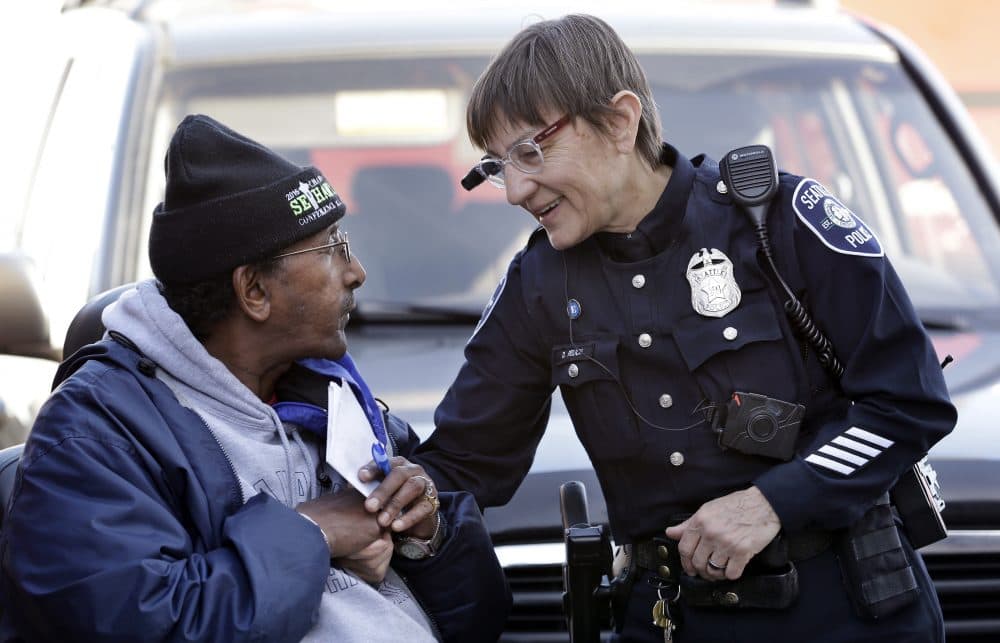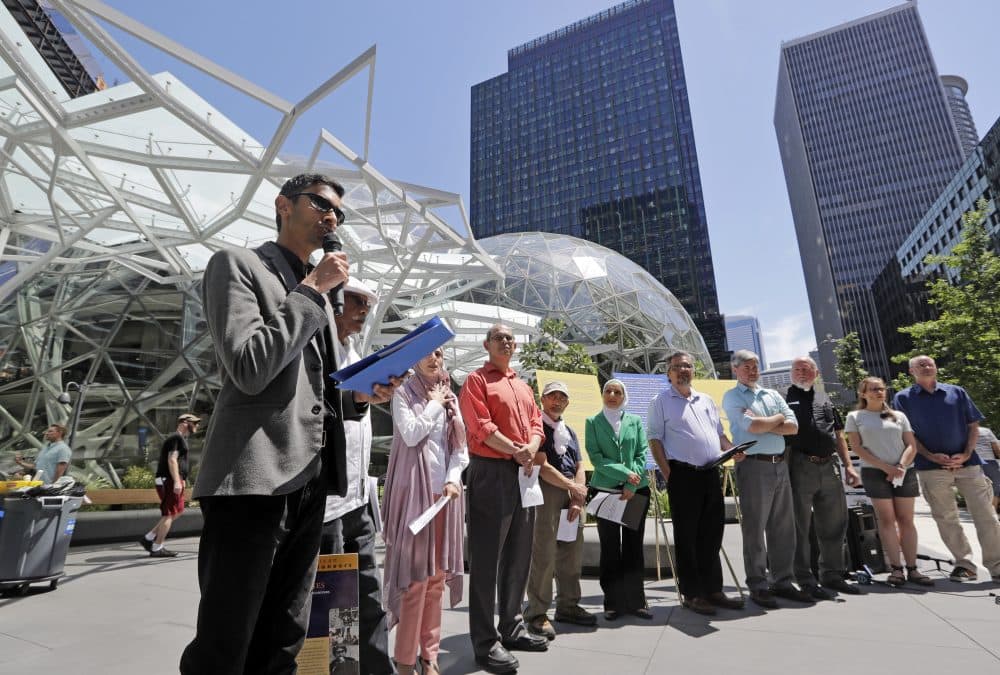Advertisement
Commentary
Massachusetts Should Ban Face Recognition Technology

Imagine a world in which law enforcement officials can compile a list of the names, addresses and images of every person at a public protest, merely by clicking a button. In this world, a district attorney angry at an internal whistleblower leaking details of his ethical violations to a Boston Globe reporter can call a friend at the police department to learn the source's identity. Meanwhile, on the other side of town, a police officer misidentifies a young black man as a murder suspect, draws his weapon, and — when the young man turns around and reaches for his cellphone to begin recording the interaction — fires.
Face surveillance technology will facilitate all of these abuses — and many others — if we don’t stop its spread. On July 26, U.S. Sen. Ed Markey sent a public letter to Amazon, asking for information about the company’s aggressive marketing of cheap face recognition software to police departments across the country. Markey highlights that “serious concerns have been raised about the dangers facial recognition can pose to privacy and civil rights, especially when it is used as a tool of government surveillance.”
Artificial intelligence technologies like face recognition systems fundamentally change the balance of power between the people and the government. In an open society that respects free speech, seeks to advance racial justice, and protects the right to privacy, some technologies are so dangerous to that balance of power that they must be rejected. Face surveillance is one of those technologies. Given these threats, the Massachusetts Legislature should ban the use of this dangerous tool.

Markey’s letter to Amazon comes after more than 70 civil rights and religious organizations, shareholders and hundreds of thousands of people nationwide demanded that the internet giant stop selling its face surveillance technology to governments. The tool is ripe for abuse, as my colleagues at the ACLU of Northern California demonstrated when they used Amazon’s face surveillance service, called “Rekognition,” to scan the faces of Congress members. The technology falsely matched 28 members of Congress to people in an arrest database. Those falsely matched were disproportionately elected officials of color.
That’s not a surprise. Earlier this year, MIT researcher Joy Buolamwini published the results of a study showing that face surveillance algorithms misidentify women and darker-skinned people at dangerous rates. While the algorithms correctly identified 99 percent of white men, the technology misidentified one out of three dark-skinned women. Meanwhile, in the United Kingdom, law enforcement has tested face surveillance in the field, with disastrous results: Ninety-eight percent of the technology’s “matches” were inaccurate.
The technology is not reliable, and some researchers suggest it never will be. But that’s not the only problem with face surveillance in the hands of governments. Even if it “worked” perfectly, the tool facilitates a form of government control that is inconsistent with a free, open and democratic society.
In China, the government is using face surveillance as a means of political and social population control. China is an authoritarian society, and so it’s no surprise that its government is making quick use of a fundamentally authoritarian technology.
In a free society, people should be able to move freely throughout public space without being tracked and cataloged by government agencies. Advocates of persistent face tracking say we have no right to privacy in public. But that’s not true. Just last month, in a landmark privacy ruling at the Supreme Court, Chief Justice John Roberts rejected the idea that we give up our right to privacy when we go outside, affirming that we retain privacy interests even as we move through public space. As the court has affirmed in recent decisions related to technology and civil rights, digital is different. A police officer may be able to follow one person around for a few hours or a few days, at great cost to the department. But technology like face tracking enables persistent — even retroactive — monitoring not of just one person, but of every person.
... [F]ace recognition systems fundamentally change the balance of power between the people and the government.
And privacy isn’t the only right under threat from face surveillance technology. We also have a right, under the First Amendment, to anonymously criticize the government. But how can we meaningfully exercise that right if government agencies, including the police, use face surveillance to catalog the names and other personal information of each person who attends a protest, walks a picket line or wears a pink hat on the subway?
The Massachusetts state police is already using face surveillance technologies, comparing images of persons of interest to the state’s driver’s license database and mug shot databases. That’s not right.
When you go to get a driver’s license at the Registry of Motor Vehicles, you don’t consent to entering your face into a perpetual lineup. And arrests are not convictions. The ACLU and other groups have long documented extreme racial disparities in arrest rates here in Massachusetts and across the country, including for things like marijuana possession — which is no longer a crime in our state. By using mugshot databases and face recognition algorithms that have a harder time matching faces with darker skin, Massachusetts officials are exacerbating historical inequities and putting people of color at heightened risk.
The Legislature must stop this practice. After all, freedom can’t protect itself.
